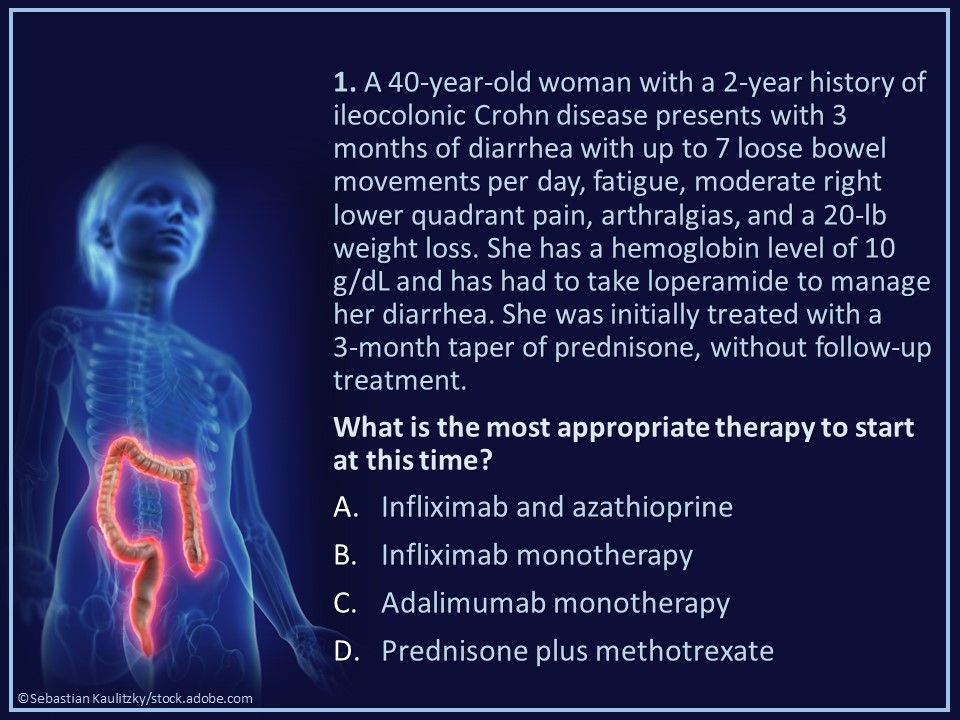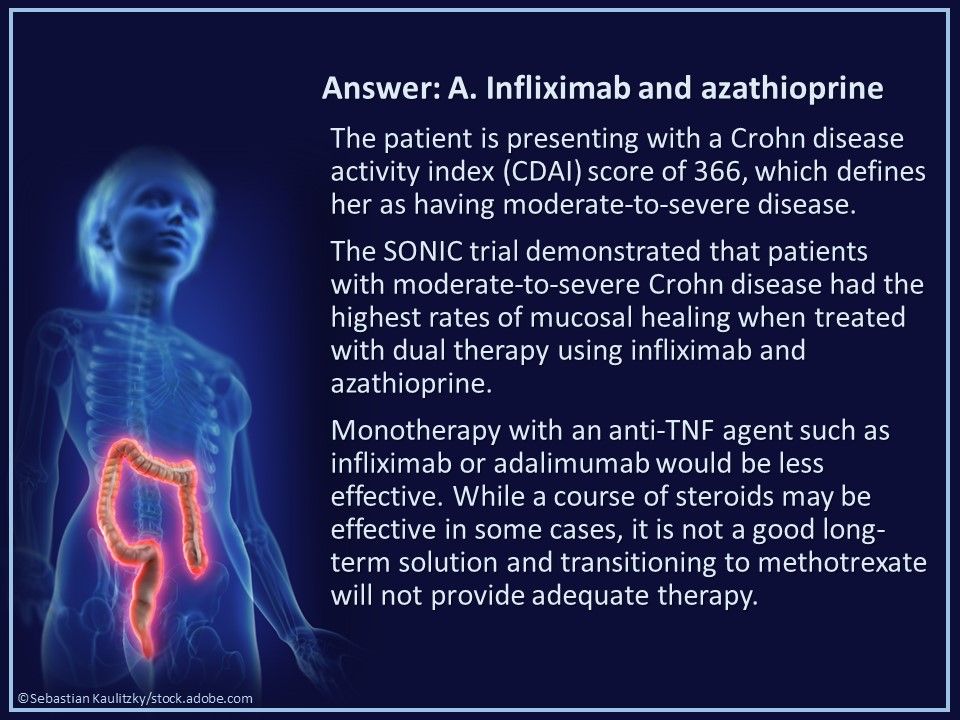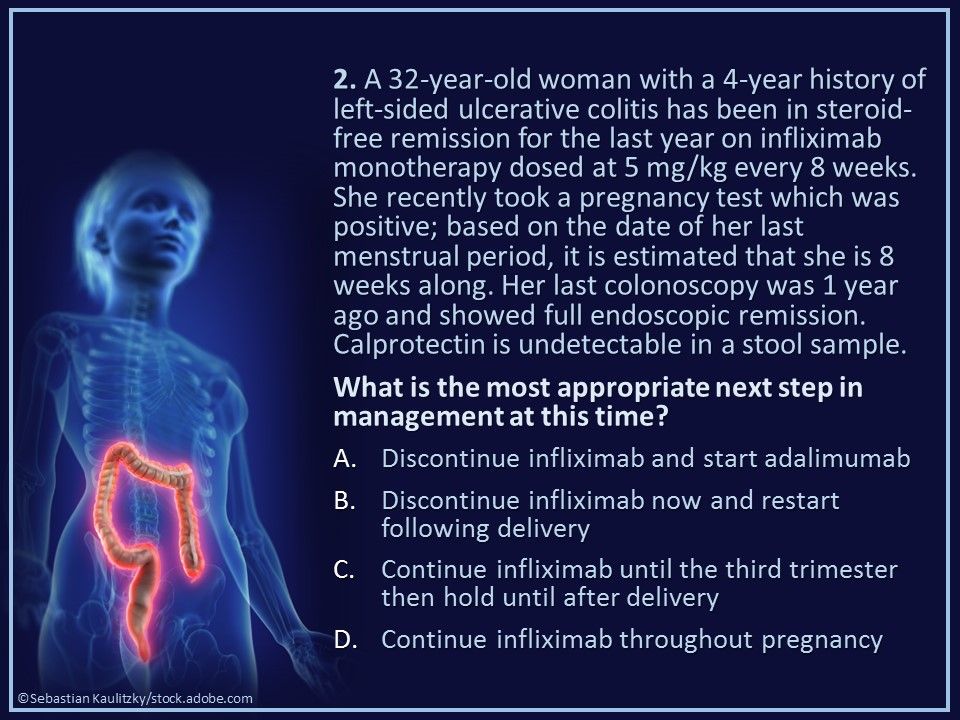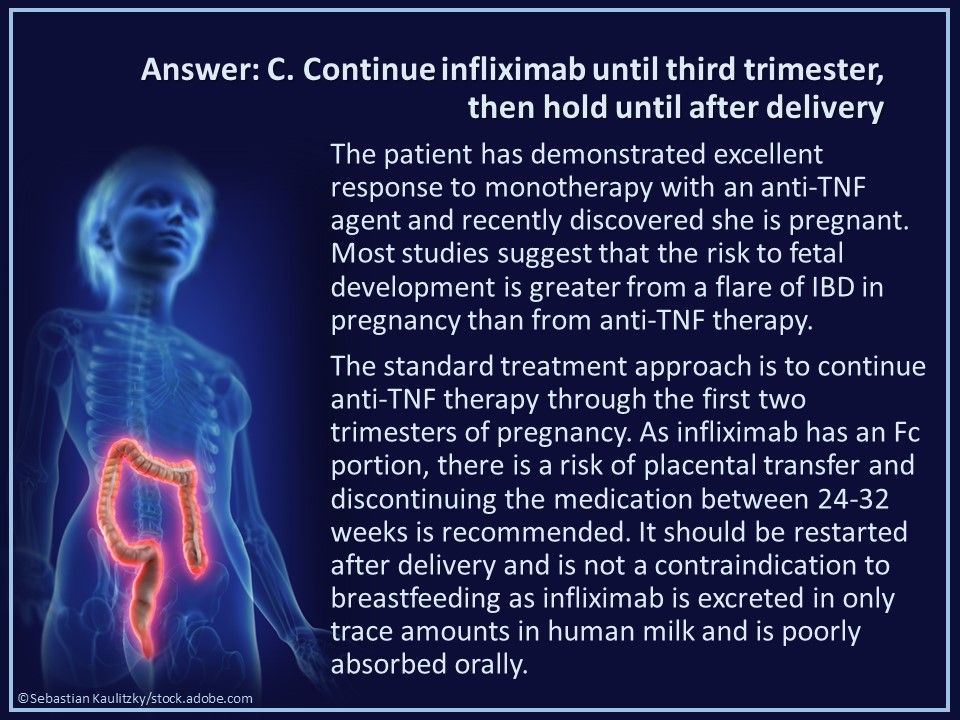© 2025 MJH Life Sciences™ , Patient Care Online – Primary Care News and Clinical Resources. All rights reserved.
GI Case Quiz: Complications in Crohn Disease & Colitis
Two women with inflammatory bowel disease present in opposite states of health. How would you manage each?

Patient #1. The patient is 40-years-old and has had Crohn disease for 2 years. She has had diarrhea for 3 months and claims up to 7 loose bowel movements/day along with somatic symptoms and a 20-lb weight loss. She has been taking loperamide to manage the diarrhea. She completed a 3-month prednisone taper with no follow-up treatment. Which of the above treatments would you start next?

Answer: A. Infliximab and azathioprine. The patient’s score on the Crohn disease activity index is 366, indicating moderate-to-severe disease. The SONIC trial showed the highest rates of mucosal healing in patients treated with a combination of infliximab and azathioprine. Anti-TNF monotherapy would be less effective; steroid therapy is not an appropriate long-term solution and methotrexate would not be adequate therapy at this point.
Suggested reading: Colombel JF, Sandborn WJ, Reinisch W, et al. Infliximab, azathioprine, or combination therapy for Crohn's disease. N Engl J Med. 2010;362:1383-95.

Patient #2. The 32-year-old woman has had left-sided ulcerative colitis for 4 years that has been in steroid-free remission for the last year. She receives infliximab monotherapy every 8 weeks. She is now estimated to be 8 weeks’ pregnant. Her latest colonoscopy shows full endoscopic disease remission. Which of the above approaches would you recommend?

Answer: C. Continue infliximab until third trimester, then hold until after delivery. The patient’s response to monotherapy with infliximab has been excellent and, in fact, most studies suggest that the risk to fetal development is greater from a flare of IBD in pregnancy than from anti-TNF therapy. The standard treatment approach is to continue anti-TNF therapy through the first two trimesters of pregnancy. Infliximab treatment should be resumed after delivery and is not a contraindication to breastfeeding.
Suggested reading: Mahadevan U, Wolf DC, Dubinsky M, et al. Placental transfer of anti-tumor necrosis factor agents in pregnant patients with inflammatory bowel disease. Clin Gastroenterol Hepatol. 2013;1:286-92.
Hassid B, Mahadevan U. The use of biologic therapy in pregnancy: a gastroenterologist's perspective. Curr Opin Rheumatol. 2014;26:347-53.
Narula N, Al-Dabbagh R, Dhillon A, Sands BE, Marshall JK. Anti-TNFα therapies are safe during pregnancy in women with inflammatory bowel disease: a systematic review and meta-analysis. Inflamm Bowel Dis. 2014;20:1862-9.
Related Content:




